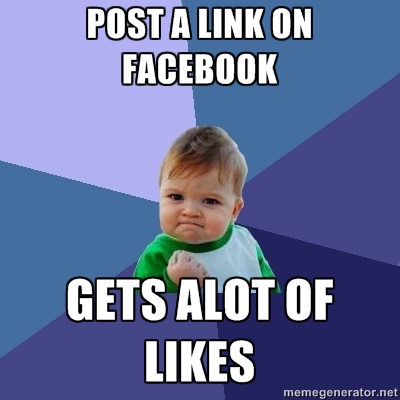I am by no means an expert on the subject, but I do know that businesses everywhere are taking notice to this technique. Measuring how many impressions your ad campaign or anything else is making is a huge selling point for clients. I had a recent grad, Matt Hetrick, come to my Media writing class to talk about his work at Branigan Communications. As far as Analytics for their campaigns, he says more and more agencies are creating a separate analytics department within their agency.
I had no idea that this field even exsisted before talking with Matt that day. Once he started talking about the possibilities that this field could show clients about the work the agency is doing, more people started to raise their hand and get involved in the subject.
Sure, by having an analytics team to show the client how well their ad is doing, they are able to make productive decisions. But in talking to the class about it, I wondered, is it harder to do analytics work for a mobile site? Is the power of a "like" on Facebook or a retweet on twitter just as valuable when you are on your mobile phone? Is it more valuable than being inside your house on the computer?
Recently, Facebook has created their own analytics for their site, in showing how advertising with Facebook will create a vast amount of impressions. People are speculating though, that they are magnifying the impressions that are made in order to make them look better. In my opinion, a "like" on Facebook is hardly worth an impression. It is very common to like something, without really taking the time to read it through. Very often, a friend will "beg" you to like a post from work in order for them to get a pat on the bak from their boss. The way that Facebook is using analytics in my opinion, is manipulative and misguiding for a potential client.
I had no idea that this field even exsisted before talking with Matt that day. Once he started talking about the possibilities that this field could show clients about the work the agency is doing, more people started to raise their hand and get involved in the subject.
Sure, by having an analytics team to show the client how well their ad is doing, they are able to make productive decisions. But in talking to the class about it, I wondered, is it harder to do analytics work for a mobile site? Is the power of a "like" on Facebook or a retweet on twitter just as valuable when you are on your mobile phone? Is it more valuable than being inside your house on the computer?
Recently, Facebook has created their own analytics for their site, in showing how advertising with Facebook will create a vast amount of impressions. People are speculating though, that they are magnifying the impressions that are made in order to make them look better. In my opinion, a "like" on Facebook is hardly worth an impression. It is very common to like something, without really taking the time to read it through. Very often, a friend will "beg" you to like a post from work in order for them to get a pat on the bak from their boss. The way that Facebook is using analytics in my opinion, is manipulative and misguiding for a potential client.
In order to answer the question involving the different structure of analytics on mobile, I want to specify it with a company like Facebook. When you are on your phone, are you more or less likely to like or comment on something? For me, I know that unless I feel very strongly about it, I tend to keep to myself when it comes to social media on my phone. Their is something about posting on Facebook when you may not have all the details that is scary.The small screen sometimes inhibits my ability to get the full surrounding story, and I may go back to look at it on my computer to make a more accurate posting.
I know it sounds silly, and I may be the only one who micro-manages things like Facebook and Twitter, but it is an interesting thought. That being said, with my own experience, I see that getting impressions when it is made through a mobile phone is much more meaningful, and in most cases, more engaging!
I know it sounds silly, and I may be the only one who micro-manages things like Facebook and Twitter, but it is an interesting thought. That being said, with my own experience, I see that getting impressions when it is made through a mobile phone is much more meaningful, and in most cases, more engaging!




 RSS Feed
RSS Feed